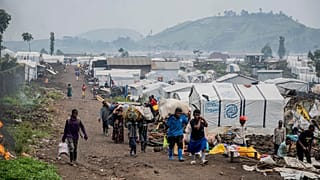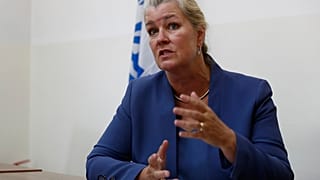Water
As many as 2.2 billion people still live without access to safe drinking water and 3.5 billion lack access to decent sanitation, according to a new United Nations report published on World Water Day.
“I think the situation is really challenging,” said Li Lifeng, Director of FAO’s Land and Water Division in Rome.
The UN report “Water for prosperity and peace” highlights that tensions over water are exacerbating conflicts worldwide. “(We) say without water, there's no life. Then without the water, there's no food. So water is the core, is the indispensable natural resources for sustainable development, for agriculture, for many different economic sectors.”
Among the countries most affected by water scarcity is Zimbabwe, which “has been facing drought since last year,” according to Lifeng.
He said there was a concerns about crop failure with more than two million in Zimbabwe potentially facing hunger.
Like some of its southern African neighbors, Zimbabwe is battling a devastating drought that aid agencies blame on El Niño and climate change.
The southern African country's staple maize harvest is expected to halve to 1.1 million tons in 2024 due to an El Nino-induced drought.











01:42
Moroccans mark 50th anniversary of Green March into Western Sahara
01:12
Moroccan king welcomes UN support for its Western Sahara autonomy plan
01:20
United Nations rights office alarmed by killings in Tanzania protests
02:18
UN calls for immediate ceasefire in Sudan's al-Fashir after mass killings
01:19
UN calls for support for Caribbean countries hit by Hurricane Melissa
01:31
UN urges safe passage for civilians in war-torn Sudan city of El- Fasher